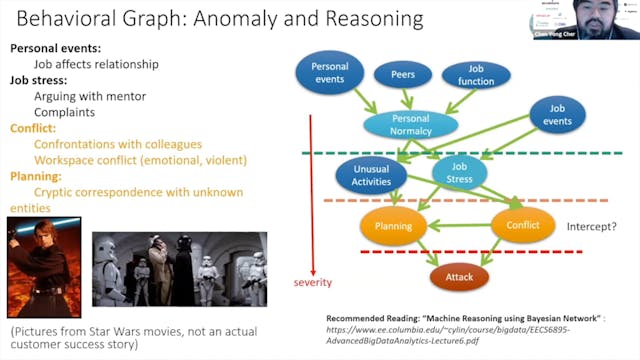Workshop Personal Health Knowledge Graphs | Part 1
KGC 2020
•
1h 32m
Electronic health records (EHRs) have become a popular source of observational health data for learning insights that could inform the treatment of acute medical conditions. Their utility for learning insights for informing preventive care and management of chronic conditions however, has remained limited. For this reason, the addition of social determinants of health (SDoH) [1] and ‘observations of daily living’ (ODL) [2] to the EHR have been proposed. This combination of medical, social, behavioral and lifestyle information about the patient is essential for allowing medical events to be understood in the context of one’s life and conversely, allowing lifestyle choices to be considered jointly with one’s medical context; it would be generated by both patients and their providers and potentially useful to both for decision-making. We propose that the personal health knowledge graph is a semantic representation of a patient’s combined medical records, SDoH and ODLs. While there are some initial efforts to clarify what personal knowledge graphs are [3] and how they may be made specific for health [4, 5], there is still much to be determined with respect to how to operationalize and apply such a knowledge graph in life and in clinical practice. There are challenges in collecting, managing, integrating, and analyzing the data required to populate the knowledge graph, and subsequently in maintaining, reasoning over, and sharing aspects of the knowledge graph. Importantly, we recognize that it would not be fruitful to design a universal personal health knowledge graph, but rather, to be use-case driven. In this workshop, we aim to gather health practitioners, health informaticists, knowledge engineers, and computer scientists working on defining, building, consuming, and integrating personal health knowledge graphs to discuss the challenges and opportunities in this nascent space.
Up Next in KGC 2020
-
Chen Yong Cher | Enterprise Knowledg...
In the realm of enterprise applications such as cybersecurity and anti-money laundering (AML), data and system engineers team up to deal with interconnected data of great scale and richness. The regulatory need adds requirements to instant tracibility and explanability of data and analytic models...

